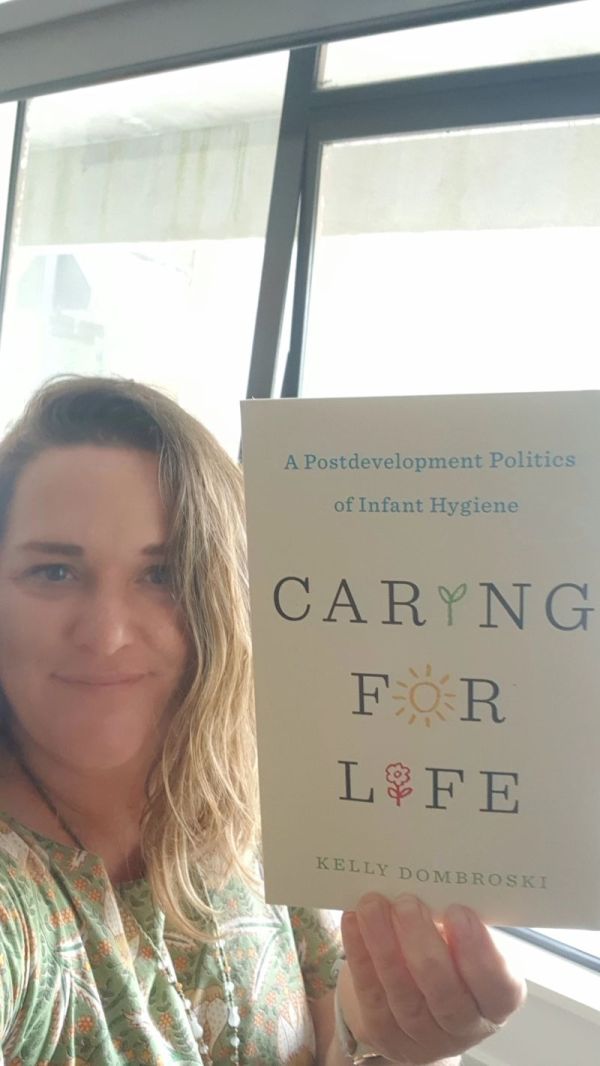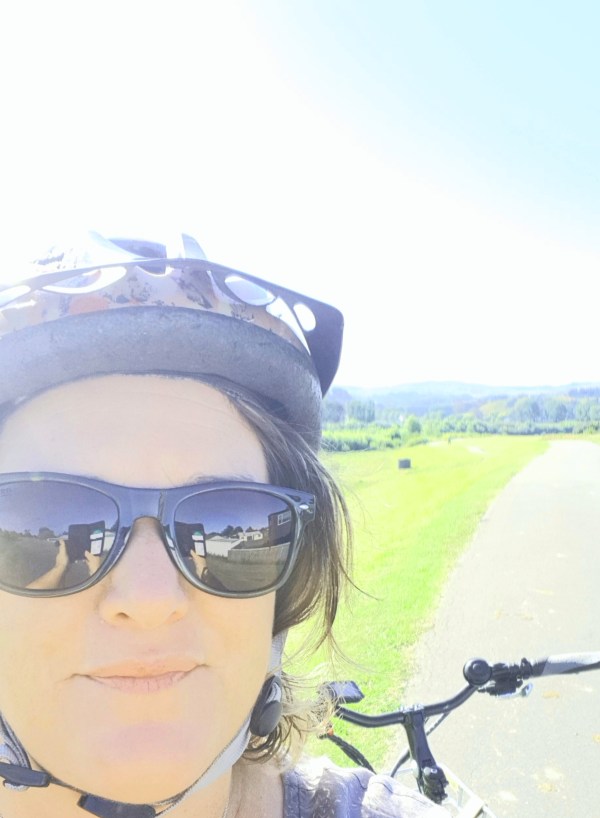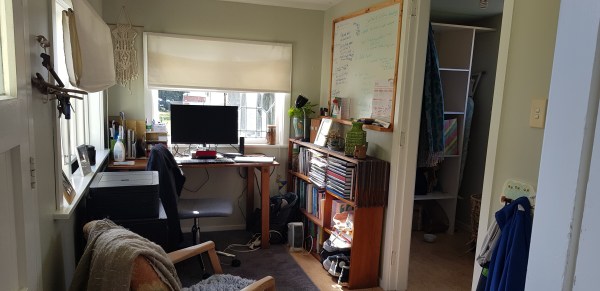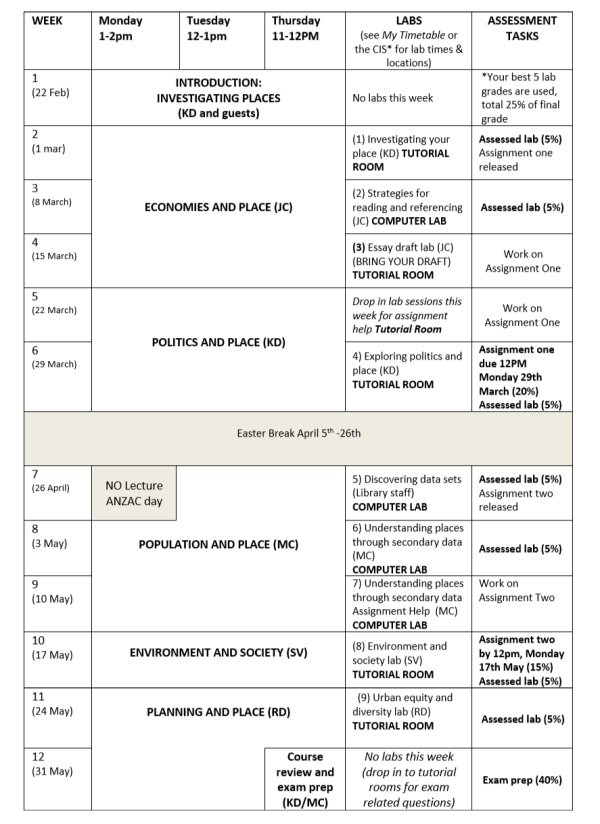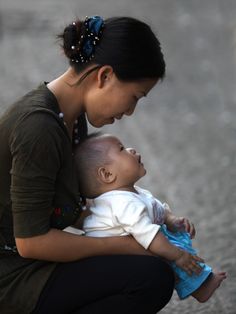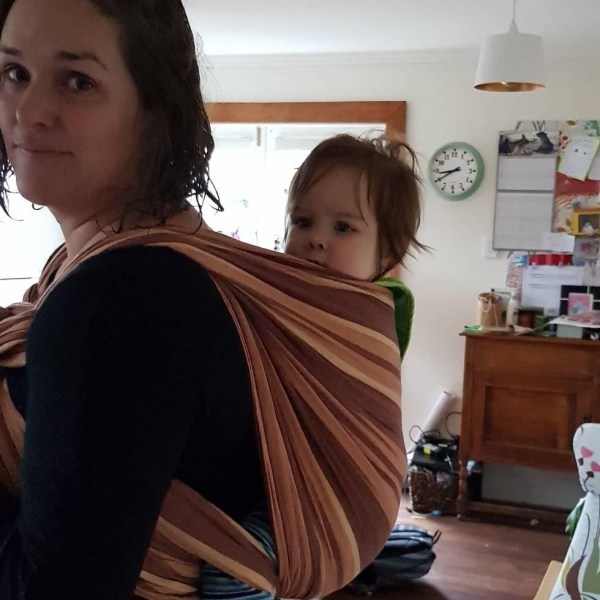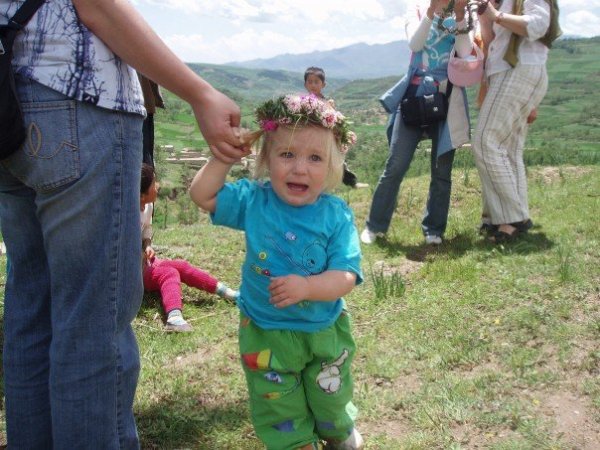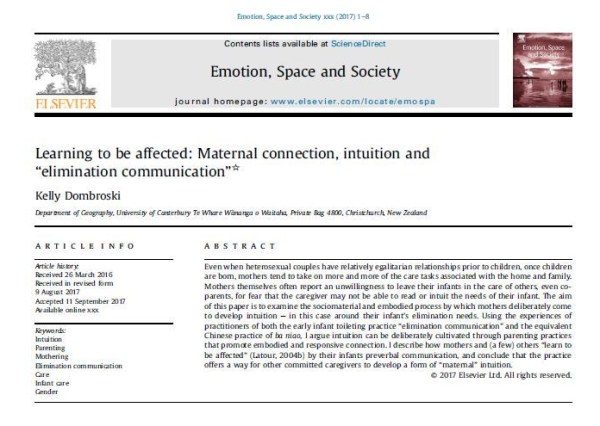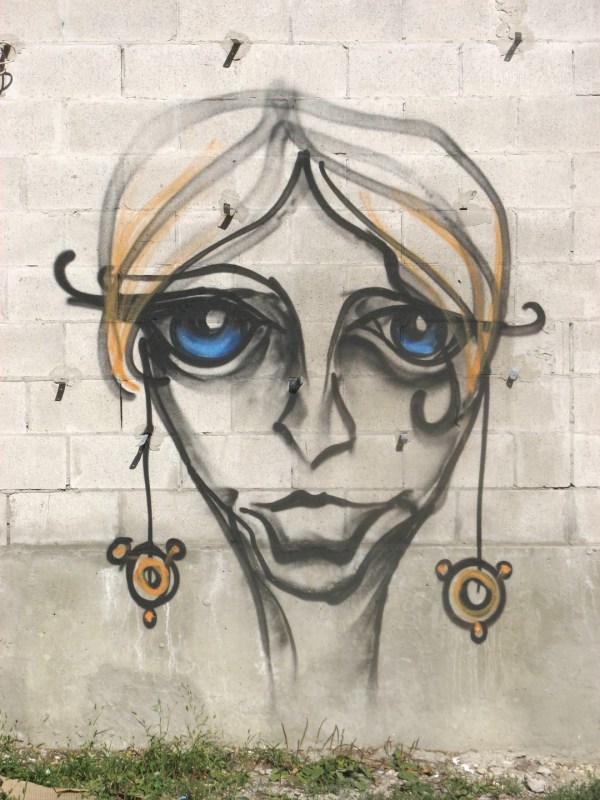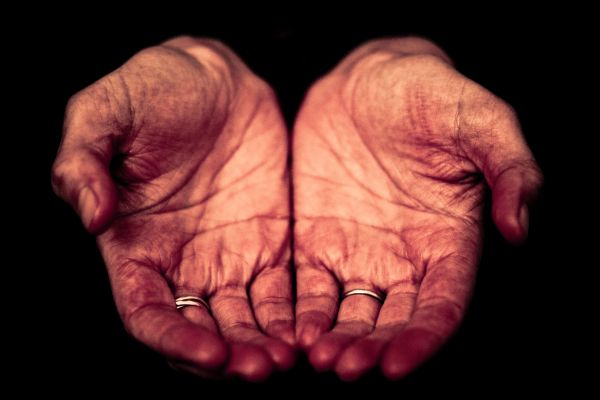Do you ever feel like it is just so pointless to write academic articles, books, and commentaries?
Caring for life: the book that is finally here
Wow! Thank you to those of you who have stuck with me for TEN years now. This blog is 10 years old and the BOOK that I have been working on for all that time is finally for real. The final stages of the book included spending August of 2022 recieving NO meetings zoom or... Continue Reading →
Why academics should learn to meditate, and other things you can’t say on Twitter
I was a Twitter user for a decade. Like many people, I left a few months after Elon Musk bought it since it no longer seemed to connect me to the community I had formed there. I do miss it, but in hindsight, it was probably a good thing. One thing that annoyed me was... Continue Reading →
What is a postcapitalist counter-city? And what does it have to do with Ōtautahi Christchurch?
I had fun exploring the idea of 'counter-cities' and connecting it with postcapitalist politics of commoning and care, and literature on social infrastructures of care. Here's a plain language summary from my research blog. http://postcapitalistpossibilities.blog/2023/11/14/an-article-about-uncovering-a-postcapitalist-counter-city-in-otautahi-christchurch/
University skills: Doing your first geography assessment
Beginning your first assessment in university human geography can be daunting. But here is a step-by-step guide to getting started.
Editing: the most painful and most pleasurable writing task
Editing is the most painful and most pleasurable part of writing for me. In the book coming out of my PhD thesis, it was more pain than pleasure!
Life Update!
Kia ora everyone. Just a quick post to update you on my institutional move to Massey University, and my physical relocation to Palmerston North, New Zealand. You can see a bit of my cycle commute in the image! This is a permanent move. For the first five years, I will be research only as part... Continue Reading →
An ode to my garden on my last day here
It is our last day in our wee house in Ilam, Ōtautahi Christchurch. We have been here for just over nine years, first renting it when it was mold infested and freezing, then buying it and restoring and renovating it to be home to our family of six. The garden has been my job, and... Continue Reading →
Travel: Six things I’ve re-learned this year
This year has been an explosion of travel for me, at this point still domestic. I kind of knew it would be hard to go back to, but was sort of excited about it. Now I'm kind of over it. When should we travel, and when is it important? That answer is different for everyone.... Continue Reading →
The city as laboratory: what post-quake Christchurch is teaching us about urban recovery and transformation
Maja Moritz, CC BY-ND Kelly Dombroski, Massey University and Amanda Yates, Auckland University of Technology In the aftermath of a series of earthquakes that devastated Ōtautahi Christchurch 12 years ago, impromptu and transitional organisations kickstarted the city’s recovery. On the many vacant sites in the demolished city, they supported pop-up shops, installations and events to... Continue Reading →
Focus, interruption, and an overdue book
Writing a book is so hard. Well, drafting a book was relatively straightforward. But the post-review rewrite and edit has been brutal. It's not that I can't do it, it's finding the time and space to have uninterrupted writing and editing that allows me to retain the whole book in my head while I finish... Continue Reading →
Getting your PhD (back) on track 3: getting the right kind of feedback
How do you get the right kind of feedback from your supervisor? There isn't one right answer but in this post I point you in the direction of some resources to help you get started.
Getting your PhD (back) on track 2: other tasks
In my PhD workshops, there are also plenty of students who can do the deep work, but struggle to get all the other tasks done that ensure they can complete their PhD. This includes organising meetings, organising interviews or data collection, calling people on the phone, getting progress reports completed, organising childcare and assisting their... Continue Reading →
Getting your PhD (back) on track 1: Deep work and focus
Recently I gave a workshop about getting your PhD on track -- or back on track, for those who have had some delays and detours due to COVID-19 and the usual crises and distractions that accompany PhDs. It seemed clear to me that I could not get anyone's PhD back on track in a mere... Continue Reading →
WTF is the teaching-research nexus? Or, how my teaching load supports my research
Yesterday I was giving a short talk to a group of early career researchers doing a two day workshop. I have good memories of doing the same workshop when I first began at my current workplace. I remember folks coming in and speaking to us and how actually, a couple of ideas I got from... Continue Reading →
Check list process for university course planning and design
It's the first lecture, and the bright or bleary eyed students will be turning up to hear what is in for them for the semester. But the work started long before. And I don't mean lecture preparation. Lecture preparation is one of the last things that happen in my course design process. Here is my... Continue Reading →
“I do everything they say but my supervisor is never satisfied”
I have run five 'finish your dissertation' groups in my time as an academic, and it is such a privilege to get insight into the thesis process from a group of students who I am NOT supervising. One thing I hear from students is that they do 'everything' their supervisor tells them to, but the... Continue Reading →
What other countries can teach us about ditching disposable nappies
Kelly Dombroski, University of Canterbury This year, the small Pacific Island nation of Vanuatu announced a plan to ban disposable nappies, as well as other throwaway items such as plastic bags. While some commentators praised the move, others worried about what the alternatives might be, and how this might affect household workloads, particularly for women.... Continue Reading →
Rituals and Sabbaths for Large Family Life
We all have family rituals, whether we realise that is what they are or not. In a larger family these rituals start to take on a life of their own, becoming a sort of adhesive that binds the family together. They might take a little bit of effort to set up, but if the fit is right, I reckon they become the things kids grow up and remember as part of themselves, helping them feel they belong. They communicate a sense of collective belonging that is one of the key ingredients to intrinsic wellbeing.
International Women’s Day: Generation Equality and care work for everyone
Dr Kelly Dombroski Talk for UN Aotearoa International Women’s Day Brunch, 8 March 2020 Introduction International Women’s Day is a time to celebrate the women in your life, and it is great to see you all here doing that. The unspoken question here is why do we need a special day for women? Actually –... Continue Reading →
How I held it together and reorganized my book manuscript without being reduced to an embarrassing mess (and other lies)
"Oh crap." I thought, for the six hundred millionth time since I had opened my overdue manuscript. Other common thoughts included: "This is total crap." "Did I write this crap?" "This isn't quite so crappy." "Oh crap, that needs a lot of work." And so on, for several hours a day, for almost the entire... Continue Reading →
My new normal: reducing decision fatigue with four kids and fulltime work
I used to think routines are unnecessary. Now I can't live without them!
Six things I wish I had known before editing my first collection
I am currently working on the introduction to The Handbook of Diverse Economies with the wonderful Katherine Gibson. It is the last chapter of our 58 chapter handbook, and, as is often the case with introductions, it is flowing out of our fingers and an amazing rate! What an immense privilege it has been to... Continue Reading →
Care-Work on Fieldwork
Reblogging from 2015: Every time I publish an article based on my personal PhD experiences with fieldwork, I tell myself it will be the last. So far, I have four. Just last year, I was part of an awesome team and put out this one: Farrelly, T., Stewart-Withers, R., & Dombroski, K. (2014). ‘BEING THERE’:... Continue Reading →
Making my own life-work manifesto
Lately I have been feeling very disillusioned with the academic life. I mean, I've always intellectually known that our reach is often short, our work ignored and overlooked, and our lifestyles completely overrun by our work. But recently, I have been feeling it more, and feeling more dissatisfied about it. Then a few things happened... Continue Reading →
Saying yes, saying no: 4 years tracking my voluntary academic activities
Recently in my Twitter circle, I've been part of a few conversations about academic workloads, work-life balance, and managing the pressure of early career researcher decision-making. It forced me to recall a post from January 2017, where I committed to putting some limits on the 'voluntary' parts of our job. But as you may recall... Continue Reading →
The work of “Life Admin”
I recently read Elizabeth Emen's 2019 book The Art of Life Admin. Well, perhaps inhaled is a better verb to describe what I did with it. I got it out of the public library on OverDrive and read it while travelling with my four kids and husband during the Easter school holidays. This travel to... Continue Reading →
Academic Maternity Leave : The shame game
It is a milestone week. My baby is now past the six week mark. We saw our wonderful wise midwife for the last time professionally and were transferred into the care of our medical centre. I took my son for his vaccinations, somewhat more anxiously than with my older three: a Facebook friend had called... Continue Reading →
Blogging by phone
So Boochani wrote his award winning book on WhatsApp. And I have been blogging so irregularly: firstly because I have way too many writing deadlines and even when I have wanted to blog, I worry what people expecting writing from me will think if I am wasting time blogging! But the other reason that writing... Continue Reading →
Three Words 2018: Less, Dwell, Write
In the last few years I have been choosing some focus words for each year, rather than a New Year's Resolution. In 2018, after reflecting on the words and things I learned in 2017, I decided on the word 'less', 'dwell' and 'write'. Of all the years I've been doing this, it feels like this... Continue Reading →
Becoming a quality scholar through deep work
How do we become scholars that produce quality thinking and research, and stay sane in an academic environment where bringing in salary recovery dollars and churning out publication 'fluff' sometimes seems more important than deep and rigorous research and writing? Many New Zealand academics would have faced their CVs with some angst this year as... Continue Reading →
Collective Strategies for Deep Work
In a previous post reviewing Cal Newport's book Deep Work I promised I would write a post sharing more collective strategies for enabling deep work, in particular for people with heavy care-loads. I suggested that sometimes the consequences are different for women trying to draw a line around their deep work time, and I imagine... Continue Reading →
The Invisible Gender of Deep Work
A book review of Cal Newport's Deep Work: Rules for Focused Success in a Distracted World, 2016, London: Little Brown. It's no secret that many of us find it difficult to find space to do the deep thinking that we need to push forward our work -- our paid work, but also our self-work, or... Continue Reading →
Arisan (rotating savings and credit group)
This entry appears on https://communityeconomiesasia.wordpress.com/. People can upload keywords or practices of community economy around Asia!
Keywords of Community Economies in Asia
Indonesia
Ririn Haryani and Kelly Dombroski
Arisan is a rotating credit system that has been present in Indonesia for over one hundred years. In contemporary times, arisan involves a regular meeting of a consistent group whereby each member contributes an equal amount of money or goods each meeting, and whereby a draw is held allowing one member to receive the combined sum of contributions. This rotates around the group until everyone has won. It is customary that the winner from the last round will provide the venue and snacks for the coming arisan round.
The practice is believed to have originally come from China through trade activities with the Orang Asli (indigenous Indonesians), even before the era of Western colonialism. The practice went through an acculturation process with local traditions and customs of helping each other, known as gotong royong. This means that arisan is more than economic exchange…
View original post 828 more words
Surviving Well Together
KELLY DOMBROSKI and STEPHEN HEALY describe a community economies approach to poverty which seeks to acknowledge what people are already doing in their communities to sustain themselves and then to act in solidarity with them. REPUBLISHED from Tui Motu Interislands Magazine. Many thanks to editor Ann Gilroy. How can we work to transform our economies... Continue Reading →
Three Words 2017: Prepare, Deeper, Joy
Prepare, deeper, joy. For 2017, these were my touchstone words, reminding me of the things I was to ponder and experiment with this year. Choosing a word for the year is something a little bit more open to the unknown, a little less goal-driven and anxiety producing than deciding how much weight to lose or... Continue Reading →
An article six years in the making…
I am just so ridiculously pleased to finally have this article out. I first presented the material that became this article in July 2011 in Sydney, Australia. I have been on two writing retreats where I've worked at least in part on this article. I have rewritten it countless times into three or four different... Continue Reading →
Why diversity matters in Christianity
If you have been around Christian churches long enough, you will know there is often both subtle and not-so-subtle pressures to conform to a certain understanding of Christianity — whatever that might be in your tradition. There is no small amount of anxiety that one might not be a ‘proper’ Christian, believing the ‘right’ things... Continue Reading →
Be gone, cruel voices
I’m pretty sure I’m not alone in this. I’m thinking of when you have something important to do, to say, but become paralysed by your uncertainty about your ability — or your right — to do it, to even begin! What if what I have to say is not actually so important, if it is, in fact,... Continue Reading →
Five things I learned while editing my thesis into a book
It has been some time now since I published the posts on writing your book proposal for an academic book coming out of your thesis (see also this and this). I promised at the time I would keep people updated with how that process went, but to be honest, just finding time to work on... Continue Reading →
I know, I’ll wait, I’m here
This is re-post of a piece co-authored with Stephen Healy for The Daily Marinade , first published July 15th 2017. In a post circulating on facebook from 2016, a woman describes her struggle with giving up alcohol in a society that seems to require women to drink to just get through life. Giving up drinking... Continue Reading →
On (the impossibility of?) settling down
It seems to be thing. Couples who fall in love with each other, commit to a shared life together, then at some point discover their idea of home is -- well, if not incompatible then with a pretty darn small overlap. I don't mean here in terms of tidiness and mess (although, sure, that is... Continue Reading →
Slow, painful, rewrite #9
I'm guessing about the #9, actually. I'm pretty sure I've completely rewritten this paper more than nine times, it's just nine for this title. But for what it's worth, I'm sharing my daily progress because it's just so painful to still be working on this paper, and to be SO LATE to the editor (sorry,... Continue Reading →
Thinking-with, Dissenting-within
I am about three chapters in to Maria Puig de la Bellacasa's book Matters of Care: Speculative Ethics in More Than Human Worlds. In the same way that Richard Rohr seems to express my thoughts before I even am conscious of having them in the area of spiritual practice and belief, Puig de la Bellacasa seems to... Continue Reading →
The Waiting Day
Another re-blog from The Daily Marinade, a daily devotional I contribute to regularly. This is the time of waiting, the time of not-knowing, the time of awkward looks and sniffles, and 'maybe we got it all wrong'. Jesus - the Messiah - dead and in a tomb. The scriptures don't say much about what happened... Continue Reading →
Lent as a practice of social change
Reblogged from The Daily Marinade, a daily devotional by a collective of wonderful, thoughtful, spiritual people. Growing up in the Catholic tradition normally meant I at least knew when Lent was, even if I didn't always observe it any particular way. I do remember we got to order fish and chips on Fridays at school,... Continue Reading →
Completion: On getting stuff done
Every year, I choose three words and write them on a post-it note above my desk. They help me guide my decision-making for the year in a more intentional way. In 2016 one of my words was Complete. I actually chose that word based on my desire to finish a whole lot of work related... Continue Reading →
Connect: On Making Grown-Up Friends.
Every year I choose three words, put them on a post note above my desk, and use them to help me prioritise my day-to-day decision-making. In 2016, one of those words was Connect. We've had to move a lot in the last ten years, and we've lived in 3 different countries, 5 cities, in 8... Continue Reading →
How much is enough? Setting some limits on ‘voluntary’ academic work for the new year
Every year, I try and do some work on being more intentional about the things I say yes to.


